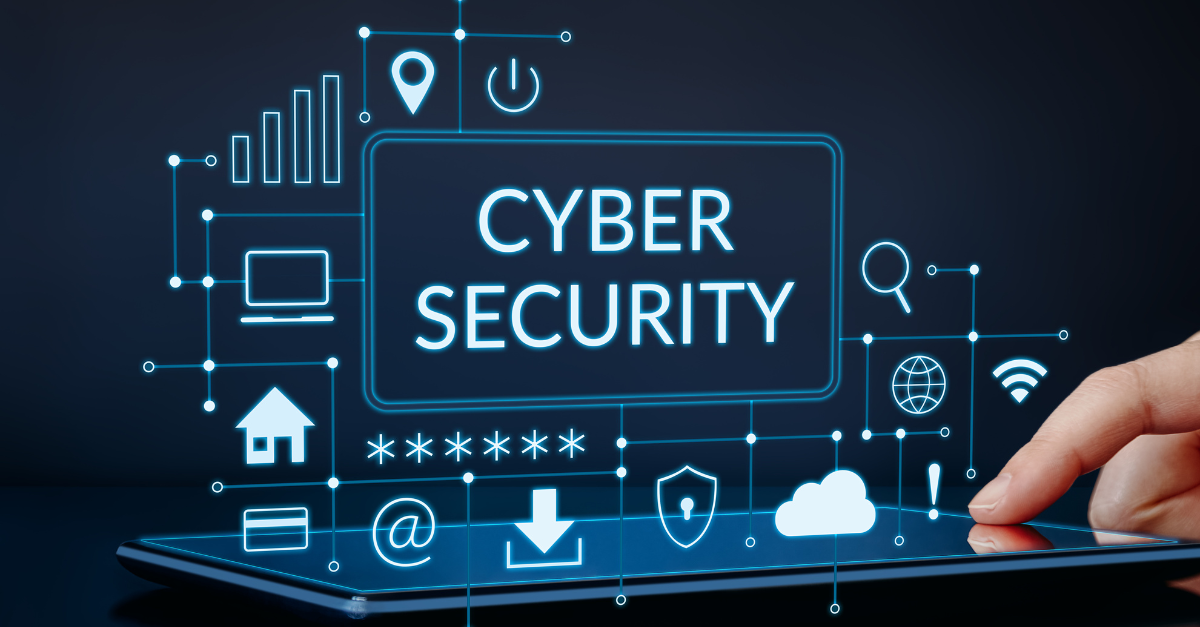
In the ever-evolving landscape of information technology, the role of cybersecurity has become increasingly crucial. As businesses continue to embrace digital transformation and leverage technology for various operations, the need for robust cybersecurity measures cannot be overstated. IT consulting firms play a pivotal role in guiding organizations through this complex terrain, helping them navigate potential threats and vulnerabilities. This article delves into the significance of cybersecurity in the realm of IT consulting, exploring the challenges, best practices, and the evolving nature of cybersecurity in the modern business environment.
The Growing Threat Landscape
Cybersecurity has become a top priority for organizations globally due to the rising frequency and sophistication of cyber threats. IT consulting firms are witnessing a paradigm shift in the nature of these threats, with hackers employing advanced techniques to exploit vulnerabilities in networks, applications, and devices. The financial implications of cyberattacks can be severe, leading to data breaches, financial losses, and damage to an organization’s reputation.
As businesses increasingly rely on interconnected systems and cloud-based services, the attack surface for potential cyber threats expands. IT consultants play a critical role in identifying, mitigating, and preventing these threats. They must stay abreast of the latest cyber threats, trends, and technologies to provide effective guidance to their clients.
Regulatory Compliance and Legal Implications
The regulatory landscape for data protection and privacy is evolving rapidly. Governments and regulatory bodies worldwide are enacting stringent laws to safeguard sensitive information and hold organizations accountable for data breaches. For IT consulting firms, ensuring compliance with these regulations is paramount. Failure to do so can result in legal consequences, financial penalties, and reputational damage for both the consulting firm and its clients.
The General Data Protection Regulation (GDPR) in the European Union, the Health Insurance Portability and Accountability Act (HIPAA) in the United States, and similar regulations in other regions underscore the importance of implementing robust cybersecurity measures. IT consultants must possess a comprehensive understanding of these regulations and work collaboratively with their clients to ensure compliance.
Safeguarding Intellectual Property
In the digital age, intellectual property is a valuable asset for many organizations. This includes proprietary software, trade secrets, research and development data, and other sensitive information. Cybercriminals often target intellectual property for financial gain or to gain a competitive advantage in the market. IT consultants must assist organizations in safeguarding their intellectual property through the implementation of robust cybersecurity measures.
By conducting risk assessments, vulnerability analyses, and implementing data encryption, IT consultants contribute to the protection of their clients’ intellectual property. Additionally, they play a crucial role in creating awareness among employees about the importance of maintaining the confidentiality and integrity of sensitive information.
Business Continuity and Resilience
Cybersecurity is not only about preventing attacks but also about ensuring business continuity in the face of a security incident. IT consulting firms need to work with organizations to develop and implement robust incident response plans. These plans should encompass detection, containment, eradication, recovery, and lessons learned from security incidents.
Business resilience in the digital era requires proactive measures such as regular backups, disaster recovery planning, and continuous monitoring of IT systems. IT consultants are instrumental in guiding organizations through these processes, helping them build resilience against cyber threats and minimizing the impact of potential disruptions.
Emerging Technologies and Cybersecurity Challenges
The rapid adoption of emerging technologies such as the Internet of Things (IoT), artificial intelligence (AI), and blockchain introduces new dimensions to cybersecurity challenges. These technologies bring unprecedented opportunities for innovation but also pose unique security risks. IT consultants must stay at the forefront of technological advancements to address the security implications associated with these innovations.
For example, the proliferation of IoT devices increases the attack surface, creating new entry points for cybercriminals. IT consultants must advise clients on implementing security measures for IoT devices, such as strong authentication, encryption, and regular firmware updates. Similarly, the use of AI in cybersecurity, including threat detection and response, requires a nuanced understanding to ensure its effectiveness.
Best Practices in Cybersecurity for IT Consultants
To effectively address the cybersecurity needs of their clients, IT consultants should adhere to a set of best practices. These practices form the foundation for a comprehensive and proactive approach to cybersecurity.
Risk Assessment and Vulnerability Management: Conducting regular risk assessments and vulnerability analyses is essential to identify and prioritize potential threats. This helps IT consultants tailor their cybersecurity recommendations based on the specific risks faced by each client.
Security Awareness Training: Human error is a common factor in many cybersecurity incidents. IT consultants should advocate for and assist in implementing security awareness training programs to educate employees about the importance of cybersecurity and best practices for safeguarding sensitive information.
Multi-Layered Defense: A robust cybersecurity strategy involves implementing multiple layers of defense. This includes firewalls, antivirus software, intrusion detection and prevention systems, and encryption. IT consultants should guide organizations in adopting a defense-in-depth approach to enhance overall security.
Incident Response Planning: Developing and testing an incident response plan is critical for minimizing the impact of security incidents. IT consultants should work with organizations to create comprehensive incident response strategies tailored to their specific business processes and IT infrastructure.
Regulatory Compliance: Stay informed about the latest developments in data protection and privacy regulations. IT consultants should help their clients understand and comply with these regulations, mitigating the risk of legal consequences and financial penalties.
Continuous Monitoring and Threat Intelligence: Implementing continuous monitoring of IT systems allows for real-time threat detection. IT consultants should recommend the use of threat intelligence feeds to stay informed about the latest cyber threats and vulnerabilities relevant to their clients’ industries.
Encryption and Data Protection: Encouraging the use of encryption for sensitive data, both in transit and at rest, is essential for maintaining data confidentiality. IT consultants should guide organizations in implementing encryption technologies that align with their specific needs and compliance requirements.
Collaboration with IT and Security Teams: Effective communication and collaboration between IT consultants and internal IT and security teams are crucial. This collaborative approach ensures that cybersecurity measures are integrated seamlessly into the organization’s existing infrastructure and processes.
The Evolving Role of IT Consultants in Cybersecurity
As the cybersecurity landscape continues to evolve, the role of IT consultants becomes increasingly dynamic. Beyond traditional consulting services, IT consultants are expected to proactively engage with clients, staying ahead of emerging threats and technologies. This requires a continuous learning mindset, adaptability, and a commitment to staying at the forefront of the cybersecurity field.
Advisory Services: IT consultants are not just implementers of cybersecurity solutions; they are trusted advisors. Organizations look to IT consultants for strategic guidance on cybersecurity policies, risk management, and compliance. The ability to provide informed and forward-thinking advice distinguishes top-tier IT consultants in the cybersecurity space.
Training and Education: With the growing awareness of cybersecurity risks, IT consultants are increasingly involved in training and educating employees at all levels within an organization. This includes conducting workshops, creating educational materials, and fostering a culture of security awareness.
Integration with DevOps: The integration of cybersecurity practices into DevOps processes is a critical aspect of modern IT consulting. IT consultants must collaborate with development and operations teams to ensure that security is considered from the initial stages of software development, rather than being treated as an afterthought.
Cloud Security Expertise: As organizations migrate their infrastructure and applications to the cloud, IT consultants must possess expertise in cloud security. This includes understanding the shared responsibility model, configuring security controls in cloud platforms, and ensuring the secure use of cloud services.
Cybersecurity Audits and Assessments: Conducting cybersecurity audits and assessments is a proactive measure to identify weaknesses in an organization’s security posture. IT consultants are often engaged to perform these assessments and provide recommendations for improvement.
The importance of cybersecurity in IT consulting cannot be overstated. As businesses navigate the complex and ever-evolving landscape of information technology, the role of IT consultants is paramount in ensuring the security and resilience of IT infrastructure. Cybersecurity is not merely a technical consideration; it is a strategic imperative for organizations looking to protect their assets, maintain regulatory compliance, and build trust with stakeholders.
IT consultants must embrace a holistic approach to cybersecurity, considering not only technological solutions but also the human and procedural aspects of security. By staying informed about the latest threats, regulations, and technologies, IT consultants can provide invaluable guidance to their clients, helping them navigate the challenges of the digital age.
As the cybersecurity landscape continues to evolve, IT consultants must adapt and expand their skill sets to meet the demands of a rapidly changing environment. The ability to integrate cybersecurity into every facet of IT consulting, from advisory services to training and education, is essential for providing comprehensive and effective solutions.
In the face of persistent cyber threats, organizations must recognize the proactive role that IT consultants play in enhancing their cybersecurity posture. By investing in cybersecurity measures and collaborating closely with IT consulting experts, businesses can not only mitigate risks but also position themselves for sustainable success in an increasingly digitized world.


